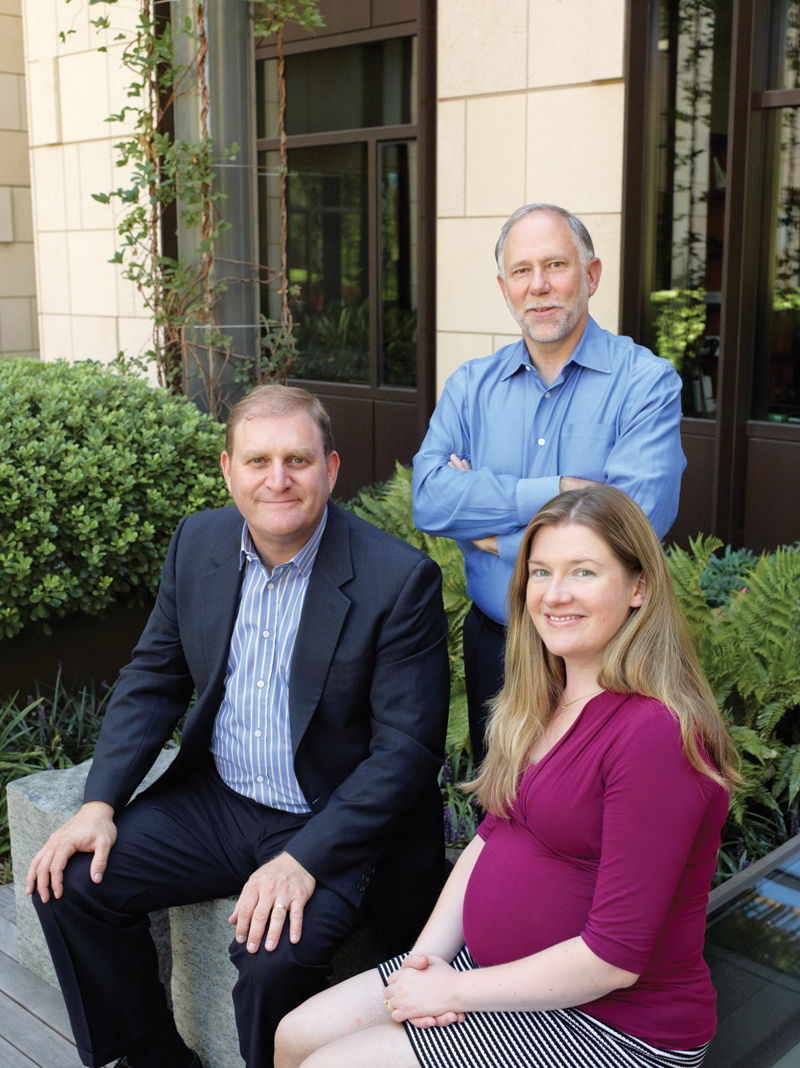New Faculty: Bernadette Meyler, JD ’03

When Bernadette Meyler joined the faculty this summer, she brought not only her skills as a multidisciplinary scholar but also her musical gifts. An award-winning, Juilliard-trained violinist, Meyler, professor of law and Deane F. Johnson Faculty Scholar, has already collaborated with several faculty members in a chamber music group—including Paul Brest (viola) and Barbara Fried (cello).
“It’s wonderful to be able to interact with colleagues and friends in ways that are different than the normal ways that legal scholars engage with each other,” she says. “With music, we are addressing issues of interpretation in a completely different context.”
Similarly, Meyler’s scholarship focuses on the academic overlap of different contexts, specifically, humanities and law. And it is that specialty that she will pursue at SLS, where she will significantly advance the law school’s mission to enrich its interdisciplinary offerings.
Meyler, however, wasn’t always sure that she wanted to be a law professor, although she knew that she wanted to be an academic. Following graduation from Harvard in 1995 with a BA in literature, she began PhD studies in English at the University of California, Irvine.
“I became interested in law as a doctoral candidate while serving as a teaching assistant for a class on citizenship, and it was then I decided to give law school a try,” says Meyler. She wasn’t sure if she was going to stay, but her time at Stanford Law School converted her.
“I joined Law Review and by the time I graduated I had worked as a research assistant for Dean Kathleen Sullivan and professors Bob Rabin, Marc Franklin, and Janet Halley,” she says. “They all influenced my development as a legal scholar and supported my intellectual interests in both law and the humanities.”
After graduation, Meyler clerked for Judge Robert Katzmann of the U.S. Court of Appeals for the Second Circuit. She then joined the Cornell University faculty, where she taught at the law school and eventually also in the English department. At Cornell, she founded and led the school’s annual Law & Humanities Colloquium, the first program of its kind in the nation. In 2009, she served as the inaugural Mellon/LAPA Fellow in Law and the Humanities at Princeton and was honored with the Provost’s Award for Distinguished Scholarship at Cornell.
Meyler’s scholarship is notable for its breadth as well as its depth. At SLS, Meyler initially will teach Constitutional Law: The Fourteenth Amendment and History of the Common Law in England and America, which is cross-listed with the history department. She also plans to teach Law and Literature, which will be cross-listed with the English department.
And she is in the process of completing two books. The first, Theaters of Pardoning from Shakespeare to Kant, grew out of Meyler’s PhD dissertation. “I’m particularly interested in how the audiences of dramatic and historical tragicomedy—whether kings, students at the Inns of Court, or potential jurors—brought concepts from the literary into the legal arena and back again,” Meyler explains. “For example, Shakespeare’s Measure for Measure focuses on revenge in the biblical sense, but it ends with a pardon,” she says. “Shortly after seeing the play, King James I used similar ‘eye for an eye’ rhetoric in responding to the notorious ‘gunpowder plot’—an assassination attempt upon the king famously involving Guy Fawkes—but the king refused to pardon the perpetrators.”
In Common Law Originalism, Meyler shifts to an American context, looking at the multiple eighteenth-century common law meanings—both Colonial and English—of various constitutional terms and phrases. “The Supreme Court’s originalist justices would like us to believe that there is only one original meaning,” she says. “But based on the multiple variations I identify, as well as on the practices of common law interpretation with which members of the founding generation were familiar, I argue that we should largely reject that position.”
In addition to finishing her book projects, Meyler has assumed the directorship of the law school’s Teaching Placement Committee, which fosters aspiring legal academics. “I also would like to advise graduate students,” she says. “I did that at Cornell and really enjoyed it.”
Given Meyler’s numerous undertakings, it’s no surprise that she admits to sometimes being “exhausted.” Still, her energy and enthusiasm are infectious.
“I loved being a law student here,” she says. “I always wanted to come back.” SL
